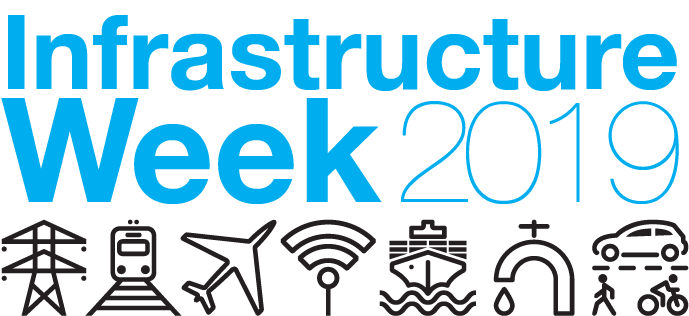The Truckload Carriers Association (TCA) is participating in the annual national advocacy and educational event, Infrastructure Week, which takes place from May 13-20.
Across the country, hundreds of businesses, labor organizations, elected officials, and more will come together to spread the message that we must #BuildForTomorrow. Investing in infrastructure is consistently one of the issues that has the strongest bi-partisan support from voters, with more supporters wanting action from government on infrastructure than almost any other issue.
When it comes to agreeing on a national vision for infrastructure, and a plan to pay for it, we have a long way to go. Regional projects with implications for the national economy aren’t getting the funding they need. And state and local projects that depend, even partly, on federal funding, loans, permitting, and new regulatory action, aren’t breaking ground. False starts, delayed starts, deferred maintenance, and inadequate levels of investment are putting our infrastructure, our health and safety, and our economy at risk. Cities, counties, states and the private sector are working hard, but need a strong, reliable federal partner to get the job done.
Now in its seventh year, led by a coalition of labor, business, and policy organizations, and joined by hundreds of affiliates nationwide, Infrastructure Week is uniting everyone to send one message to leaders in Washington and beyond: Let’s #BuildForTomorrow.
“We are thrilled that the Truckload Carriers Association is joining Infrastructure Week,” said Infrastructure Week’s Executive Director Zach Schafer. “The state of America’s infrastructure is one of the most pressing issues facing us as a nation. The benefits of a stronger, better infrastructure system could be immense, but we urgently need political courage and leadership on this issue. During Infrastructure Week, we bring together the public and private sector to encourage lawmakers to think long-term, and invest in infrastructure at the federal, state and local level.”
For more information about Infrastructure Week, please visit www.infrastructureweek.org.
Although new guidance on mask wearing returns the industry to some semblance of normalcy after over a year of lockdowns and restrictions, employers should remain cautious in revising policies.
While Texans are accustomed to living life free of excessive state-level taxes, they were in for a shock when their own U.S. Senator, Republican John Cornyn, used his national platform to advocate for the establishment of a truck-only vehicle miles traveled tax.
As we discuss ways to improve the sales relationship between carrier and shipper, the term “commodity” always comes up. Most carriers feel being a commodity diminishes the services they provide. It doesn’t have to be that way.
Three-part workshop series to focus on effective leadership communication strategies to motivate and retain your essential workers.
The nation’s top trucking research group plans to update previous studies on the effects of legalized marijuana and other drugs on truck safety along with integrating 18- to 20-year-old drivers into the industry.
Throughout the entire 90-year history of trucking in the United States, excessive detention has been a scourge on the industry. An upcoming 90-minute immersive workshop will share tools and strategies to combat this issue and keep the wheels moving and profitable.
While a request for Supreme Court review of the Ninth Circuit Court of Appeals decision to overturn an injunction banning enforcement of California’s AB5 will almost certainly follow, at this time, motor carriers who operate in California must be prepared to act in accordance with AB5.
The word “safety” is everywhere in the trucking industry. It is talked about nearly every day in the press, Congress has zeroed in on it, and most carriers will say that it is their top priority. With all this attention, it’s easy to believe that safety has become cliché. But it’s not.
A day after Colonial Pipeline said there was light at the end of the tunnel for the line’s closure due to a cyberattack, the impact of the shutdown on the ground is being felt.
Truck drivers and fleets have two months to prepare for the Commercial Vehicle Safety Alliance’s (CVSA) annual Operation Safe Driver Week, which is set for July 11-17. Here is what inspectors will be looking for.





















